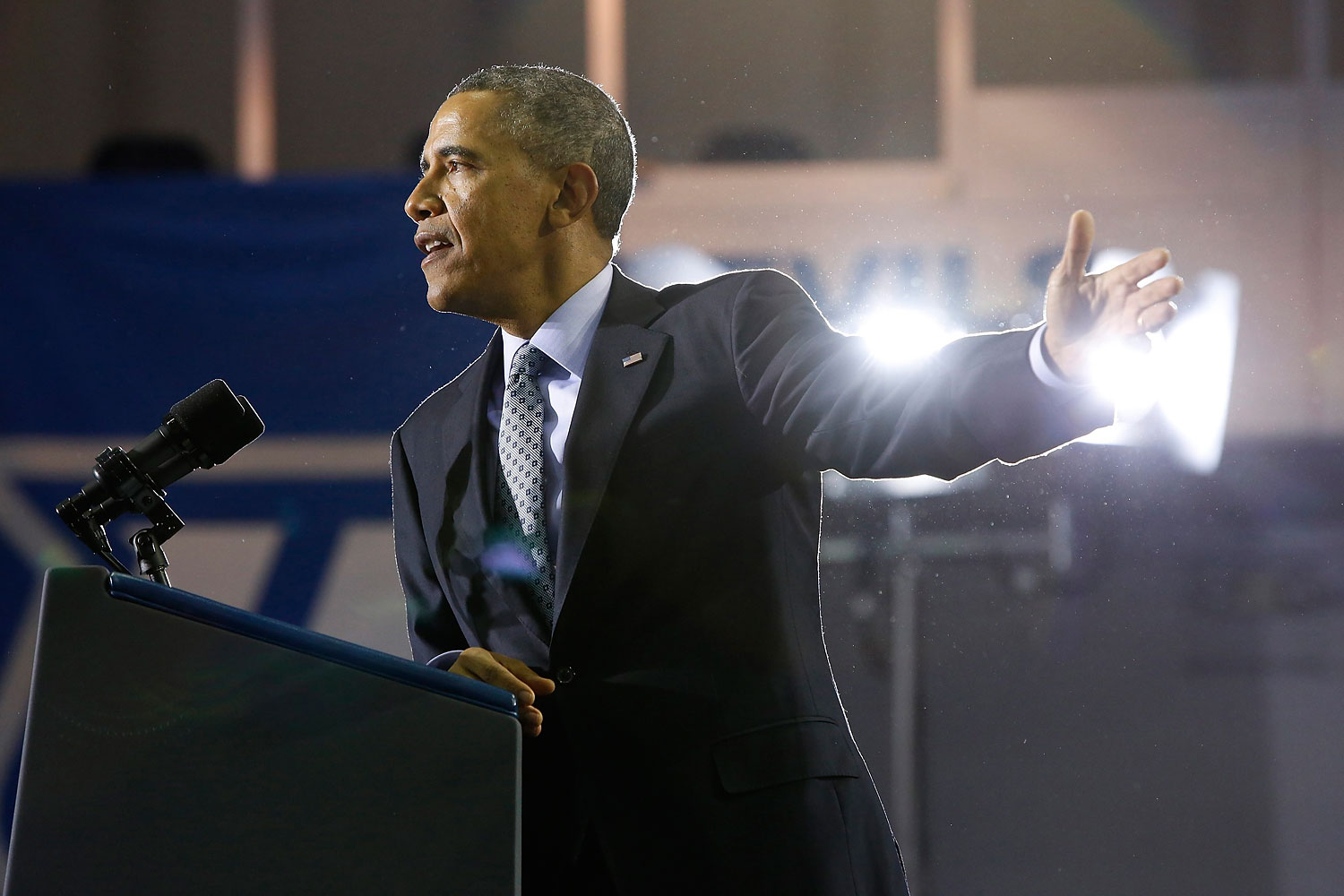
President Barack Obama ordered a round of financial sanctions Thursday targeting individuals and corporations that the Administration sees as destabilizing Ukraine or involved in the crisis in Crimea. And he spoke out forcefully against a referendum being considered that would allow Crimea to split from Ukraine and join Russia.
“The proposed referendum on the future of Crimea would violate the Ukrainian constitution and violate international law,” Obama said at the White House. “In 2014 we are well beyond the days when borders can be redrawn over the heads of democratic leaders.”
Obama’s Executive Order authorizes Treasury Secretary Jack Lew to freeze assets of individuals or entities found to be “responsible for activities undermining democratic processes or institutions in Ukraine; threatening the peace, security, stability, sovereignty or territorial integrity of Ukraine; contributing to the misappropriation of state assets of Ukraine; or purporting to assert governmental authority over any part of Ukraine without authorization from the Ukrainian government in [Kiev].”
“We believe there need to be costs and consequences for Russia for what they’ve already done in Crimea,” a senior Administration official said.
The sanctions, Obama said, “give us the flexibility to adjust our response going forward based on Russia’s actions. We took these steps in close coordination with our European allies.”
The broad directive allows for sanctions on an array of individuals, from officials of the former Ukrainian government, to Russian government, military and business leaders. White House press secretary Jay Carney warned in a statement that “depending on how the situation develops, the United States is prepared to consider additional steps and sanctions as necessary.” The new sanctions follow on previous efforts to punish those responsible for human-rights abuses in Ukraine during the months of protests that undermined the pro-Russian government.
But while the authority is in place, “no individuals or companies have been designated for sanctions this morning,” a senior Administration official said, adding that determinations would be made in the coming days and weeks, and saying of Russian threats of retaliatory sanctions: “That does not concern us.”
Obama has also ordered Secretary of State John Kerry to impose visa restrictions on officials and individuals found “responsible for or complicit in threatening the sovereignty and territorial integrity of Ukraine,” the White House said. A senior Administration official said those penalties have already kicked in for some Ukrainian and Russian individuals, but would not provide a list. Officials said this week that any sanctions would not hit the top of the Russian government, President Vladimir Putin.
The response is unlikely to severely inconvenience the intended targets. Taken unilaterally without the backing of European allies, the sanctions only affect funds within the U.S. or controlled by U.S. financial institutions abroad. Additionally, the visa restrictions only affect travel to the U.S. Administration officials said the U.K. and Germany were both consulted before the sanctions were put in place.
Carney added that the U.S. is seeking to reassure worried NATO allies by providing “additional support to NATO’s Baltic Air Policing mission and our aviation detachment in Poland.”
The U.S. is also rejecting a Russian-backed effort for a referendum in Crimea to separate from the rest of Ukraine, with an Administration official saying that to be legitimate, “the government in [Kiev] has to be a part of any decisions that are made about the future of Crimea.”
— With reporting from Denver Nicks
More Must-Reads from TIME
- Why Trump’s Message Worked on Latino Men
- What Trump’s Win Could Mean for Housing
- The 100 Must-Read Books of 2024
- Sleep Doctors Share the 1 Tip That’s Changed Their Lives
- Column: Let’s Bring Back Romance
- What It’s Like to Have Long COVID As a Kid
- FX’s Say Nothing Is the Must-Watch Political Thriller of 2024
- Merle Bombardieri Is Helping People Make the Baby Decision
Contact us at letters@time.com